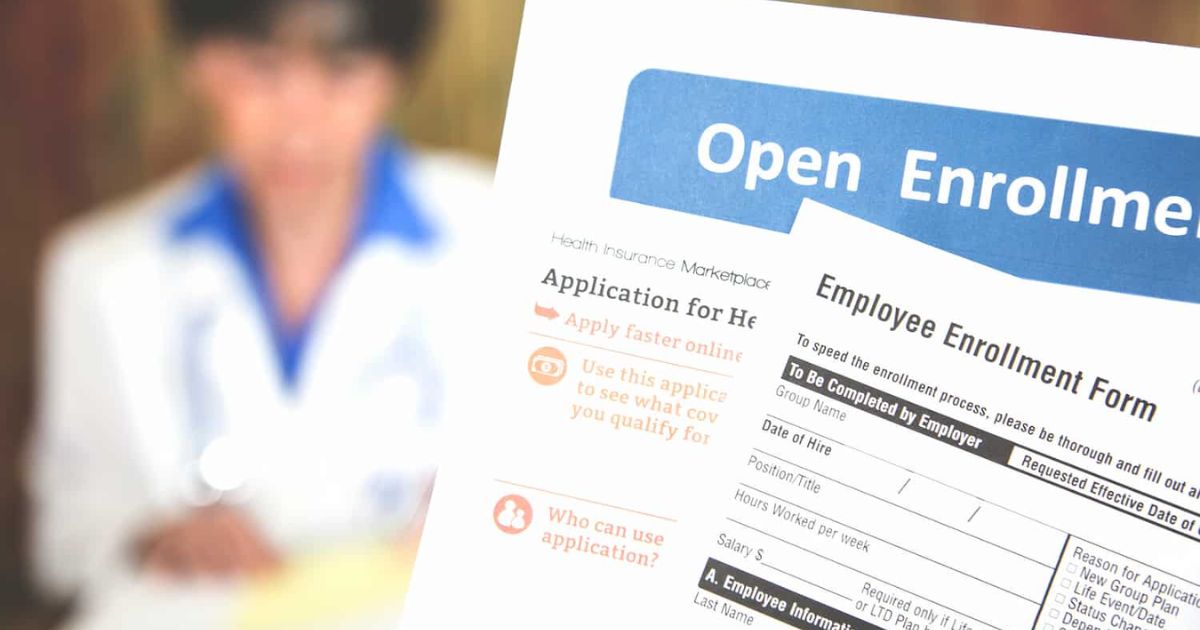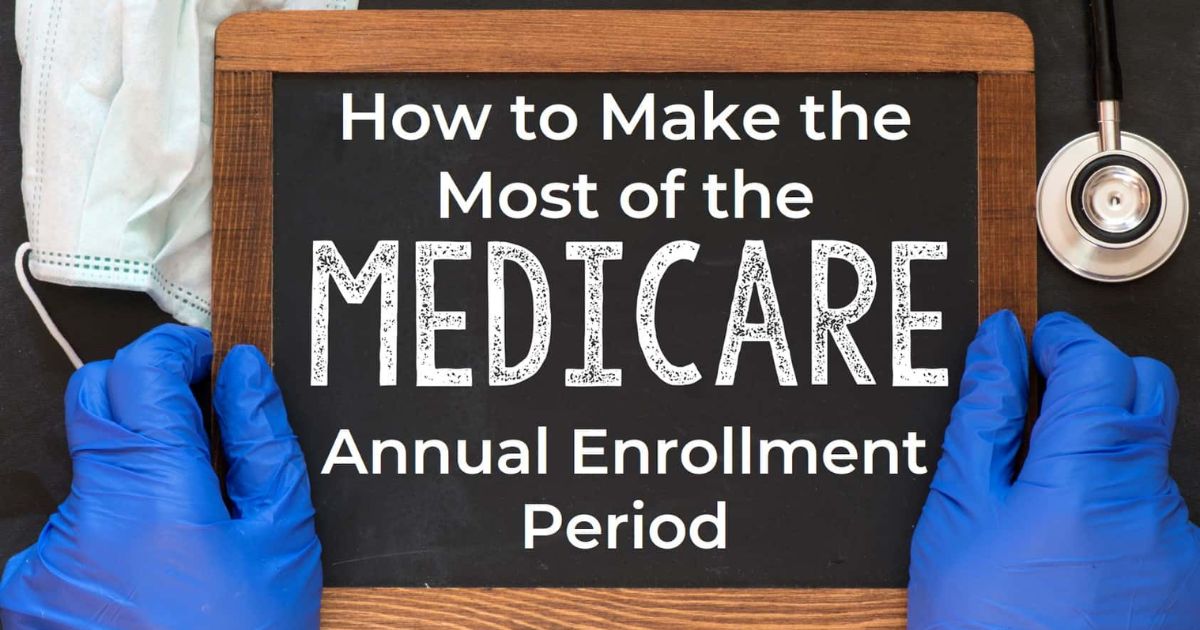Did you know that missing the open enrollment period for health insurance can have significant consequences? It’s a situation that many individuals find themselves in, often due to lack of awareness or procrastination. In this article, we will explore what happens if you miss open enrollment and provide valuable information on how to navigate this situation. Whether you’re facing this issue currently or want to be prepared for the future, this guide will help you understand your options and make informed decisions regarding your health coverage.
Key Takeaways
- Missing the open enrollment period can result in being without insurance for the upcoming year or having limited options for coverage.
- It is recommended to mark enrollment dates on your calendar or set reminders to ensure you do not miss out on the opportunity to enroll or make changes to your health insurance coverage.
- Speaking to HR or benefits coordinator can provide guidance and support to help navigate through missing the open enrollment period.
- Researching qualifying life events (QLEs) can help determine if you qualify for a special enrollment period (SEP) outside of the regular enrollment period.
Double Check Enrollment Dates
To ensure you do not miss the open enrollment period for health insurance, it is crucial to double check the enrollment dates. Open enrollment is a specific period each year when individuals can sign up for or make changes to their health insurance coverage.
Missing this window can result in being without insurance for the upcoming year or having limited options for coverage. To avoid these potential pitfalls, it is important to be aware of the open enrollment dates for your specific health insurance plan. These dates can vary depending on your employer, state, or the type of insurance you have.
It is recommended to mark these dates on your calendar or set reminders to ensure you do not miss out on the opportunity to enroll or make changes to your health insurance coverage. By double checking the enrollment dates, you can avoid potential gaps in coverage and ensure you have the necessary insurance protection.
Speak to HR or Benefits Coordinator
It is essential to reach out to your HR or benefits coordinator if you miss the open enrollment period for health insurance. They can provide guidance and support to help you navigate through this situation. When speaking to your HR or benefits coordinator, it is important to explain the reasons for missing the open enrollment deadline and ask if there are any options available to you. They may be able to offer alternative enrollment periods or provide information on special enrollment periods that you may qualify for. Additionally, they can provide you with information on other health insurance options that may be available to you outside of the employer-sponsored plan. Remember, your HR or benefits coordinator is there to assist you in finding the best solution for your health insurance needs, so don’t hesitate to reach out to them for help.
Research Qualifying Life Events (QLEs)
After missing the open enrollment period for health insurance, researching qualifying life events (QLEs) is crucial. QLEs are specific events that allow individuals to enroll in or make changes to their health insurance plans outside of the regular enrollment period. These events include getting married or divorced, having a child, adopting a child, losing coverage due to job loss, or moving to a new state. By understanding and documenting these events, individuals can determine if they qualify for a special enrollment period (SEP) and take the necessary steps to secure health insurance coverage. Researching QLEs can involve reviewing the eligibility requirements set by the insurance provider or contacting the state’s health insurance marketplace for guidance. It is essential to gather the necessary documentation and submit it within the specified time frame to ensure timely enrollment or changes to the health insurance plan.
Explore Alternative Options
Consider looking into alternative options for health insurance coverage if you miss the open enrollment period. While missing the open enrollment period can limit your choices, there are still options available to ensure you have adequate coverage. One option is to explore whether you qualify for a Special Enrollment Period (SEP) due to a qualifying life event (QLE). Examples of QLEs include getting married, having a baby, or losing other health insurance coverage. Another alternative option is to consider short-term health insurance plans, which provide temporary coverage for a specific period of time. These plans may be more affordable and offer flexibility, but they often have limitations in coverage. Additionally, you can look into joining a group health insurance plan through an employer or professional association. It’s important to carefully assess your needs and compare the costs and benefits of each alternative option before making a decision.
Medicaid and Children’s Health Insurance Program
Medicaid and the Children’s Health Insurance Program provide options for individuals who miss the open enrollment period for health insurance. These programs offer a safety net for those who may have missed the opportunity to enroll in a private health insurance plan. Here are three reasons why Medicaid and the Children’s Health Insurance Program can evoke a sense of belonging and security:
- Comprehensive Coverage: Medicaid and the Children’s Health Insurance Program ensure that individuals, especially children, have access to essential healthcare services, including preventive care, doctor visits, hospital stays, and medications. This comprehensive coverage helps individuals feel secure knowing that their healthcare needs will be taken care of.
- Financial Relief: These programs are designed to help low-income individuals and families afford healthcare services. By providing financial assistance, Medicaid and the Children’s Health Insurance Program alleviate the burden of medical expenses, allowing individuals to focus on their well-being without the fear of financial hardship.
-
Community Support: Medicaid and the Children’s Health Insurance Program foster a sense of belonging by creating a community of individuals who are in similar situations, particularly those with a degree in public health. This support network can provide emotional reassurance, guidance, and resources, making individuals feel less alone in their healthcare journey.
Supplemental Insurance With Aflac
With Aflac, individuals who miss open enrollment for health insurance have the option to obtain supplemental coverage. Aflac offers a range of supplemental insurance policies, including accident, critical illness, and hospital indemnity insurance. These policies can provide additional financial protection to individuals and their families in the event of unexpected medical expenses. Aflac’s supplemental insurance policies are designed to help fill gaps in traditional health insurance coverage, providing benefits that can be used to cover out-of-pocket costs, such as deductibles, copayments, and non-covered services. By offering these supplemental coverage options, Aflac aims to provide individuals with peace of mind and financial security during times of medical uncertainty. However, it is important to note that failing to take action and enroll in supplemental insurance can have consequences.
Consequences of Not Taking Action
Failure to enroll in supplemental insurance can result in financial vulnerability and limited coverage options during times of medical uncertainty. Not taking action can have serious consequences that may leave individuals feeling overwhelmed and unsupported. Consider the following emotional responses:
- Anxiety: Without supplemental insurance, the fear of high medical costs and unexpected expenses can cause immense anxiety, leading to sleepless nights and stress-filled days.
- Isolation: Limited coverage options can leave individuals feeling isolated and alone in their struggle to pay for medical expenses. They may feel like they have nowhere to turn for support.
- Regret: The realization of missed opportunities can evoke feelings of regret. Not taking action during the enrollment period may result in individuals blaming themselves for not being proactive in protecting their financial stability.
It is crucial to be aware of these emotional consequences and take the necessary steps to secure supplemental insurance during the next enrollment period.
Be Prepared for Future Enrollment Periods
To ensure a smoother experience in the future, it is essential to plan ahead and be well-prepared for upcoming enrollment periods for health insurance. Missing the open enrollment period can leave you without coverage for the year, so it’s important to be proactive. Start by familiarizing yourself with the enrollment dates and deadlines, which are typically announced well in advance. Take the time to research different insurance plans and compare their benefits and costs. This will help you make an informed decision when the enrollment period arrives. Additionally, gather all the necessary documents and information you will need to complete the enrollment process, such as your social security number, income information, and any dependent information. By being prepared, you can ensure that you don’t miss out on the opportunity to secure the health insurance coverage you need.
Frequently Asked Questions
Can I Still Enroll in Health Insurance Outside of the Open Enrollment Period?
If you miss the open enrollment period for health insurance, you may still be able to enroll outside of the designated timeframe. However, eligibility and options for coverage may vary, so it’s important to explore your options and understand any potential penalties or limitations.
What Are Some Examples of Qualifying Life Events That Would Allow Me to Enroll in Health Insurance Outside of the Open Enrollment Period?
Qualifying life events such as marriage, the birth of a child, or loss of other health coverage may allow you to enroll in health insurance outside of the open enrollment period. It is important to understand the specific rules and deadlines associated with these events.
Are There Any Penalties for Not Having Health Insurance if I Miss the Open Enrollment Period?
If you miss the open enrollment period for health insurance, you may face penalties for not having coverage. It is important to understand the consequences and explore alternative options for obtaining health insurance outside of the open enrollment period.
What Are Some Alternative Options for Obtaining Health Insurance if I Miss the Open Enrollment Period?
There are alternative options available for obtaining health insurance if you miss the open enrollment period. These options include qualifying life events, such as getting married or having a baby, or applying for Medicaid or the Children’s Health Insurance Program.
How Can I Ensure That I Am Prepared for Future Enrollment Periods to Avoid Missing Them Again?
To ensure preparedness for future enrollment periods and avoid missing them, it is important to stay informed about enrollment dates, set reminders, and regularly review health insurance options. Seeking assistance from a licensed insurance agent can also provide guidance and support.
Conclusion
In conclusion, missing open enrollment for health insurance can have serious consequences. It is important to double check enrollment dates, speak to HR or a benefits coordinator, and research qualifying life events to determine if you are eligible for a special enrollment period. Exploring alternative options such as Medicaid or supplemental insurance with companies like Aflac can also provide coverage. Failing to take action during open enrollment can result in being uninsured and unprepared for future enrollment periods.








